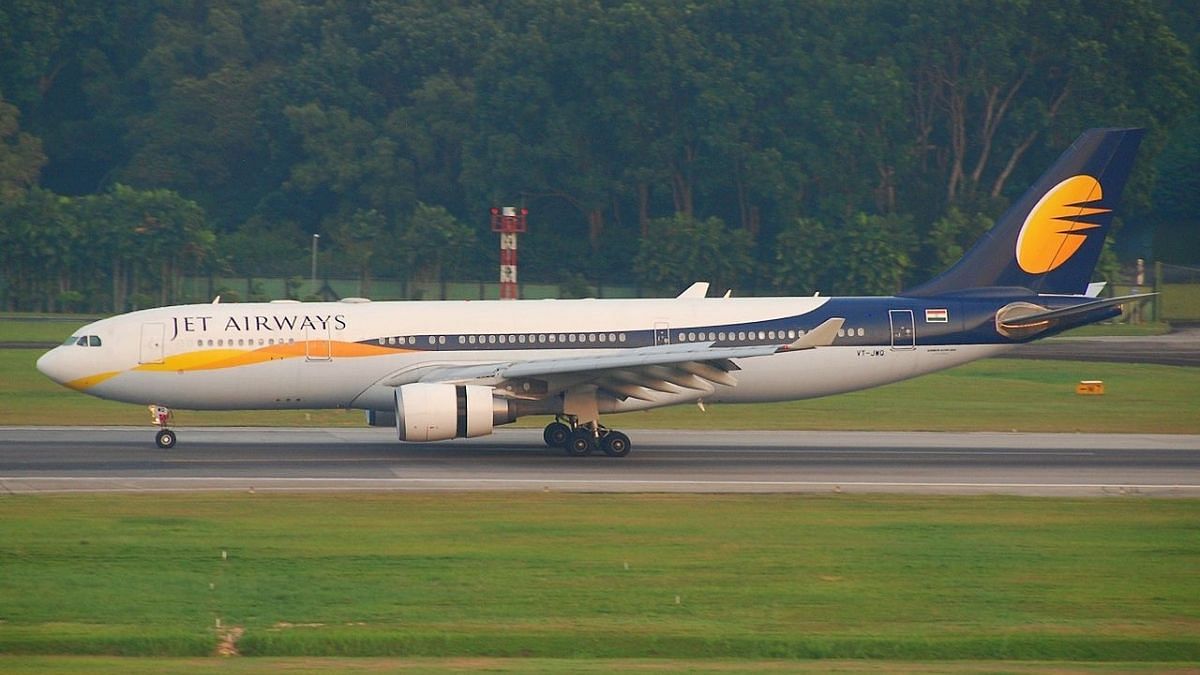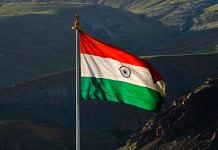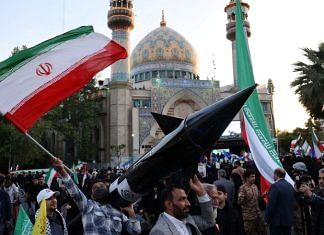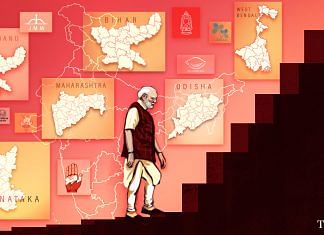Thank you dear subscribers, we are overwhelmed with your response.
Your Turn is a unique section from ThePrint featuring points of view from its subscribers. If you are a subscriber, have a point of view, please send it to us. If not, do subscribe here: https://theprint.in/subscribe/
The Indian airlines industry appears to be cursed, considering the number of airlines which failed in the last few decades.
It is also a paradox that while the Air traffic increased exponentially, from 94.41 lacs in 1993 to1674.99 lacs in 2019* registering a staggering increase of over 1681%, the industry failures have also increased alarmingly.
The list of the private airlines which became defunct in the past few decades is as follows:
| Sr. No. | Name of the Airways | Commencement
(Year) |
Defunct
(Year) |
No. of years |
| 1 | Jet Airways | 1992 | 2019 | 27 |
| 2 | East West Airlines | 1992 | 1996 | 4 |
| 3 | Modiluft Airlines | 1993 | 1996 | 3 |
| 4 | Sahara Airlines | 1993 | 2007 | 14 |
| 5 | Damania Airlines | 1993 | 1997 | 4 |
| 6 | Gujarat Airways | 1995 | 2001 | 6 |
| 7 | Air Deccan | 2003 | 2008 | 5 |
| 8 | Paramount Airways | 2005 | 2010 | 5 |
| 9 | Kingfisher Airlines | 2005 | 2012 | 7 |
| 10 | MDLR Airlines | 2007 | 2009 | 2 |
| 11 | Air Mantra | 2012 | 2013 | 1 |
| 12 | Air Pegasus | 2015 | 2016 | 1 |
| 13 | Air Costa | 2015 | 2017 | 2 |
| 14 | Air Carnival | 2016 | 2017 | 1 |
It may be noted that with the exception of Jet Airways and Sahara Airlines no private airlines could survive the turbulence for more than 5 years! The mortality rate is extremely high. Nealy 73% of the private airlines wound up within 5 years of commencement of commercial operations. Even the relatively better survivors viz, Jet Airways, Sahara Airlines and Kingfisher Airlines are also under investigation by law enforcement agencies for bank defaults and fund diversion.
Even among the survivors many are facing turbulence in the air. SpiceJet was facing headwinds with a section of its employees going on strike over reduced salaries and irregular payments, a few of the Go First’s aircrafts were grounded due to engine malfunctions during the flight, a section of the employees of Indigo went on mass casual leave to attend interviews in Air India in search of better job opportunities.
The Air India Maharaja survived mainly due to regular dole outs from the government. However, despite the takeover on favourable terms, the Tata’s still have to carry a massive baggage of legacy issues before them. The latest ominous sign being the death of Mr. Rakesh Jhunjhunwala the founder of “Akasa” within a week of launching the airline’s maiden commercial operations.
It is an enigma why people prefer investing in an industry which is highly capital intensive, high on operating costs, prone to turbulence and under government regulation for price fixation.
Is it driven by the desire and rush of the adrenaline to be at the top of the world when you fly high or an act of stupidity of not learning from others’ mistakes?
Warren Buffett, the legendary investor beautifully sums up the business of Airlines in this quote:
“The worst sort of business is one that grows rapidly, requires significant capital to engender the growth, and then earns little or no money. Think airlines. Here a durable competitive advantage has proven elusive ever since the days of the Wright Brothers. Indeed, if a farsighted capitalist had been present at Kitty Hawk, he would have done his successors a huge favour by shooting Orville [Wright] down.“
*Source: World Bank data
Email – vsm_48@yahoo.com
These pieces are being published as they have been received – they have not been edited/fact-checked by ThePrint.












COMMENTS